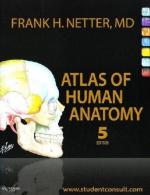|
This section contains 380 words (approx. 2 pages at 300 words per page) |

The human body is composed of eleven organ systems. An organ is any part of the body formed of two or more tissues that performs a specialized function. Examples of organs are the brain, heart, kidneys, liver, lungs, and stomach. An organ system is a group of organs whose combined workings contribute to a particular function for the body as a whole.
All systems have important functions they alone perform. The cardiovascular system—composed of the heart, blood, and blood vessels—transports nutrients, dissolved gases, and hormones to cells throughout the body. No other system in the body carries out this vital work.
But the cardiovascular system, like all other systems, cannot function alone. Indeed, to perform its work, it must interact with other systems. The red blood cells in the blood it transports are formed in the red bone marrow of certain bones (skeletal system). The nutrients it carries come from the breakdown of food by the organs of the digestive system. Oxygen and carbon dioxide, the dissolved gases that pass between the blood and cells of the body, are exchanged with the surrounding air through the work of the lungs and the passageways that carry air to them (respiratory system). Hormones, chemical messengers that maintain and regulate basic bodily functions, are produced by the glands of the endocrine system.
Although all organ systems are connected, certain systems combine with certain others to produce specific actions. The cardiovascular and lymphatic systems transport fluids through the body and provide defense against diseases and foreign substances. The nervous and endocrine systems regulate and coordinate the body's internal operations. The integumentary, muscular, and skeletal systems provide body support and movement. The digestive, respiratory, and urinary systems interact with the outside environment, exchanging material.
The human body is a well-designed and well-built machine. When its perfectly fitting parts are operating normally, the body runs smoothly and efficiently. When any part breaks down, however, so does the body. Indeed, the loss of just one system would result in death. All organ systems are necessary for survival. Thus, it is of vital importance to keep the body systems healthy, since all the systems work together.
|
This section contains 380 words (approx. 2 pages at 300 words per page) |


